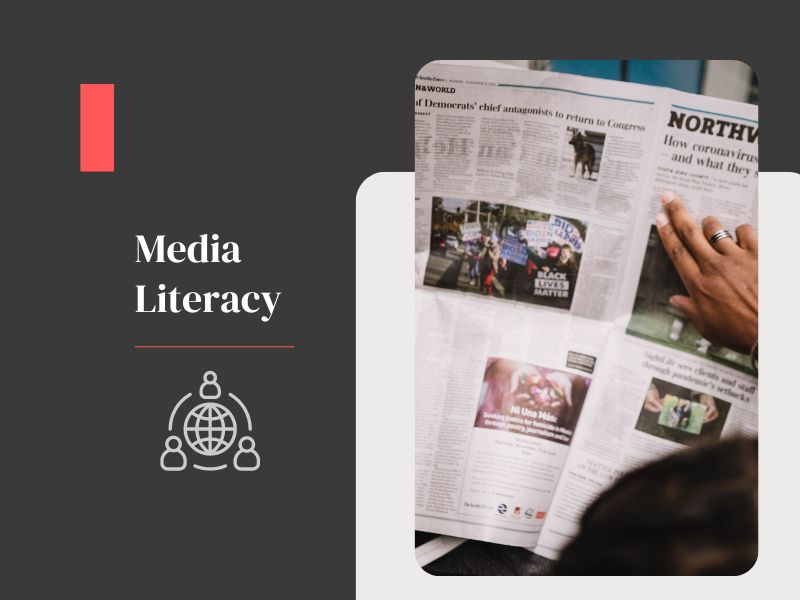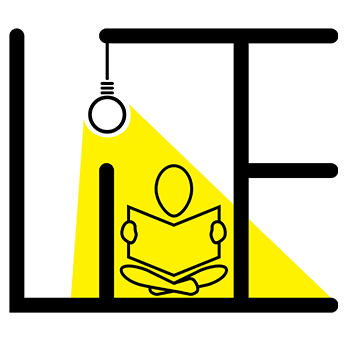In today’s digital age, where information flows seamlessly through various mediums, media literacy has become an indispensable skill. Media literacy refers to the ability to critically analyze, evaluate, and understand the vast array of media messages that bombard us daily. It empowers individuals to decode the messages, discern credible sources, and become active participants in a media-saturated society. With the rapid proliferation of information through social media, news outlets, and online platforms, media literacy is more crucial than ever before. It equips individuals with the tools to differentiate between reliable information and misinformation, fostering a more informed and discerning population. Additionally, media literacy enables individuals to engage with media content in a responsible and ethical manner, contributing to a healthier digital environment. From enhancing critical thinking to promoting civic engagement, media literacy plays a pivotal role in shaping our interactions with the modern media landscape. This article delves into the significance of media literacy, its multifaceted benefits for individuals and society, and the strategies to develop this essential skill.
The Importance of Media Literacy
Media literacy is not just a personal skill; it’s a cornerstone of a well-informed and responsible society. In an era where fake news, misinformation, and biased narratives are rampant, media literacy acts as a shield against manipulation. It enables individuals to differentiate between credible sources and sensationalized content, fostering informed citizens who can make thoughtful decisions. Beyond personal empowerment, media literacy also contributes to the broader societal fabric by promoting a culture of transparency, accountability, and critical thinking. When people possess the ability to dissect media messages, they become active participants in public discourse, challenging false narratives and demanding accurate information. This collective engagement fortifies the foundations of democracy and helps mitigate the spread of misinformation, ensuring that the public’s opinions are based on reliable sources and well-grounded analysis. As a result, media literacy is not just an individual tool, but a crucial factor in upholding the integrity of our information ecosystem and democratic values.
Enhancing Critical Thinking
Media literacy cultivates critical thinking by encouraging individuals to question, analyze, and interpret media content. It prompts them to dig deeper, identify biases, and evaluate the intentions behind media messages. This critical lens helps individuals avoid falling prey to misinformation and become discerning consumers of information. By honing their ability to scrutinize media sources, narratives, and techniques, people can navigate the complexities of the modern media landscape with confidence. This not only safeguards their personal decision-making but also contributes to a more intellectually engaged society. Ultimately, media literacy fosters a population that is equipped to sift through the noise and arrive at well-informed conclusions, strengthening the foundation of democratic discourse and informed citizenship.
Empowering Active Citizenship
An informed citizenry is essential for a thriving democracy. Media literacy equips individuals with the tools to engage with political, social, and cultural issues critically. By understanding how media influences public perception, individuals can engage in meaningful debates, contribute to discussions, and make informed choices. Media literacy empowers citizens to question the motives behind media narratives, identify propaganda, and hold authorities accountable. This active engagement goes beyond passive consumption, allowing individuals to actively shape public discourse and participate in the democratic process. In a world where misinformation can spread rapidly, media literacy becomes a shield against manipulation and a catalyst for informed civic participation. It fosters a populace capable of making decisions that align with the nation’s best interests, ensuring a vibrant and well-functioning democratic society.
Recognizing Bias and Stereotypes
Media often perpetuates biases and stereotypes that can shape our perceptions. Media literacy enables individuals to identify such biases, challenge stereotypes, and demand more accurate and inclusive representation. By developing a critical eye, individuals can dissect media messages, uncover hidden agendas, and advocate for fair and balanced narratives. Media literacy empowers marginalized communities by allowing them to question harmful portrayals and demand authentic representation. This not only leads to a more inclusive media landscape but also promotes a broader understanding of diverse cultures and identities. As individuals become more adept at recognizing bias and stereotypes, they contribute to dismantling systemic prejudices and fostering a more equitable and empathetic society.
Promoting Ethical Media Consumption
Media literacy promotes ethical media consumption by encouraging individuals to respect intellectual property rights, practice responsible sharing, and avoid contributing to the spread of misinformation. It empowers individuals to critically assess the reliability of sources before sharing content, preventing the rapid dissemination of false or misleading information. By fostering a sense of responsibility in consuming and sharing media, media literacy helps create a more trustworthy digital environment. This, in turn, contributes to a healthier online discourse and curbs the circulation of rumours and unverified information. As individuals become more conscious of the ethical implications of their media consumption habits, they actively contribute to a more responsible and informed online community.
Combatting Misinformation and Fake News
Misinformation spreads like wildfire in the digital realm. Media literacy equips individuals with fact-checking skills, enabling them to verify information before accepting or sharing it. This helps curb the spread of fake news and ensures that accurate information prevails. By encouraging individuals to be discerning consumers of information, media literacy acts as a powerful tool in the fight against the rampant circulation of false narratives. It empowers individuals to question the authenticity of claims, rely on credible sources, and make informed decisions based on reliable information. In a landscape where the lines between truth and falsehood can be blurred, media literacy provides the critical thinking skills necessary to navigate the information age responsibly and confidently.
Nurturing Media Creators
Media literacy not only focuses on consuming media but also on creating it. It encourages individuals to become conscious media creators who produce content responsibly, respecting the power that media holds in shaping public opinion. By understanding the ethical implications and potential impact of their creations, individuals can contribute positively to the media landscape. Media literacy guides creators to disseminate accurate information, avoid sensationalism, and promote diverse perspectives. This emphasis on responsible content creation not only enriches media discourse but also reinforces the notion that media is a tool for empowerment and positive change. As media creators become more attuned to the nuances of ethical storytelling, the overall quality of media content improves, benefiting both creators and consumers.
Building Resilience Against Manipulation
In an age where media manipulation is rampant, media literacy serves as a shield against manipulation tactics. It equips individuals with the ability to recognize persuasive techniques, identify clickbait, and discern how emotions are exploited to influence opinions. By honing these skills, individuals become resilient to manipulation and less susceptible to being swayed by biased or sensationalized content. This resilience not only safeguards their own beliefs and decisions but also contributes to a more informed and critical society. As media consumers become adept at dissecting media messages, they can navigate the digital landscape with confidence, making choices driven by facts and rational analysis rather than manipulation-driven emotions.
Conclusion
In a rapidly evolving digital landscape, the significance of media literacy cannot be overstated. As we navigate the complex realm of information, media literacy serves as our compass, guiding us through the maze of news, social media, and online content. It empowers individuals to discern between accurate information and falsehoods, enabling them to make well-informed choices. Given the profound impact of media on our perceptions, beliefs, and even social norms, media literacy is no longer a luxury but a vital life skill. By honing our ability to critically analyze, question, and interpret media messages, we build resilience against manipulation and misinformation. As we equip ourselves and future generations with media literacy, we cultivate a society that is not only media-savvy but also equipped to navigate the complexities of the modern world with clarity and wisdom.

